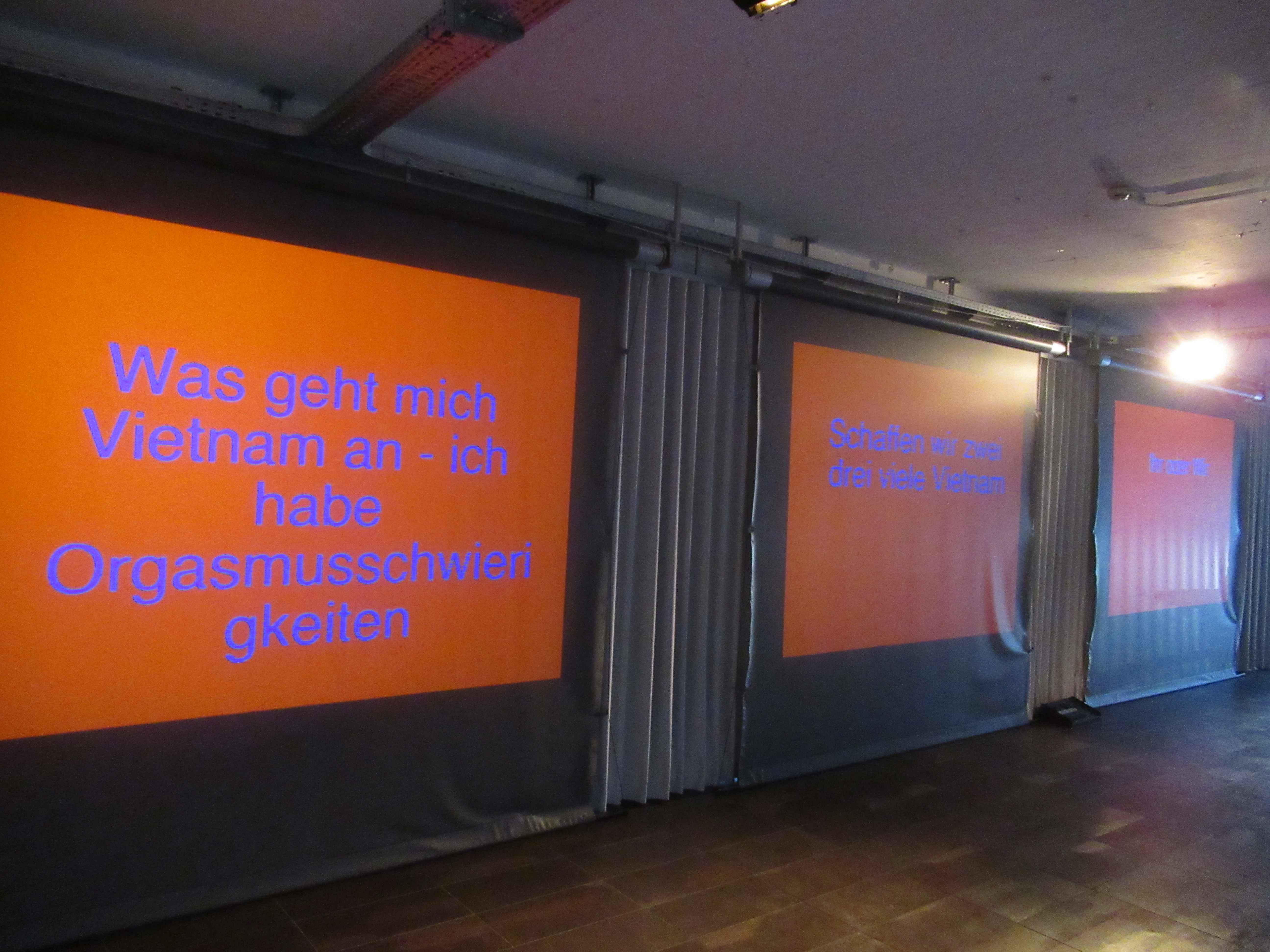1968 on the Sofa

exhibition and performances
ESC, Graz,
November 23rd 2018 - Jannuary 17th 2019
“Blessed are those who always only want to watch television, who are free of fear, who know that pictures do not bite, are desirelessly happy, to which the whole world appears at the touch of a button.” Bazon Brock
Sofa 68 deals with the construction of second-order memory, the memory of media realities and the memory of very personal sensitivities in the anniversary year 68, which will be the fiftieth anniversary in 2018.
Seppo Gründler
Sofa68
Sofa 68 deals with the construction of second-order memory, the memory of media realities and the memory of very personal sensitivities in the anniversary year 68, which will be the fiftieth anniversary in 2018.
The focus is less on personal stories than on what has happened to the story(s) that were (only) conveyed by the media at the time, the reception of reality, memory versus overlay, the memory of a certain time that gave a generation its name, even though only a fraction of them were “really” there.
What is still important to the people who lived through 1968 as teenagers or adults today, what traces did the sixties and seventies leave behind.
What is left of May 68? Are garden ponds, homes and SUVs the current topics, concerns about survival thanks to a pension that is too small, or renewed commitment thanks to the time available and the shift to the right. Let us take the discussion about 1968 out of the neoliberal discourse and look at the effects of a social movement that was primarily mediated by the media. Were new possibilities and spaces for thought opened up to a broad audience (personal comment, for example, the first student parliaments were formed here in Klagenfurt), etc., or did the movement fizzle out in repressive tolerance or its own apparent success.
In 1968, television had already become a mass medium in Europe (in 1955 there were 100,000 television sets in Germany, and by 1964 there were already 7,000,000), i.e. the period after 1964 lies on a fault line, after which important events (Olympics, moon landing, Vietnam War, 1968 protests, Prague Spring…) were primarily transmitted directly to households via imaging devices. These fault lines provide the most information about the consequences at the beginning of a transformation of the media landscape; findings can be transferred to other transformations without being historicizing.
The research takes us to various so-called cities in the wider area around Graz, from the former Eastern Bloc to Italy, and we speak to 65-75 year old women and men about their memories of 1968; online and offline archives, media and literature expand the stories
“May 68 actually didn’t have much of an impact anywhere. The movement was symbolically very important; it changed people’s brains, ways of thinking and perceptions of hierarchies, authority, the relationship between the sexes - but in reality, and especially in the school system, it didn’t achieve much. I remember going from faculty to faculty in ‘68 and saying: I agree with you, but be careful: there is nothing worse than a failed revolution! Because that is just as frightening as a successful revolution, and yet it didn’t succeed. We are now actually in a conservative revolution, I think, which is partly determined by the fear that many intellectuals and others had in May 68, not just in Europe, it was a universal revolution from Berkeley to Moscow.”
- Pierre Bourdieu 1998
The installation in the esc consists of several stations, the music sofa, the text sofa, the psycho couch, the projection and the book table.
Music sofa: Music from 1968 is used as the source material to control a modular synthesizer. Modular synthesizers are currently very topical, but their design and construction refer to the early, historical beginnings of electronic music.
Text sofa: Current interviews and texts from the 60s are the source material for a 4-channel piece that places particular emphasis on highlighting particularly current references from speeches and interviews around 1968.
Projection: the three-part projection shows political slogans from 1968 in the middle, political slogans and slogans from 1968 are randomly selected from a database, names and subjects are randomly replaced by current contemporary names and subjects from a database. The projections on the right and left show images and videos from the internet, also randomly found with search terms that are closely related to 1968.
Book table: in the 60s and 70s, the book table was a central source of information for obtaining current, critical books, run by political groups but also by private individuals. At the book table, loans from the private collections of contemporaries of the 60s and 70s will be displayed.
The supporting program for the installation includes: Opening performance by the wandering producers, Rupert Lehofer and Seppo Gründler. Rupert Lehfer creates a fictional person in real time from the interview and text fragments that are fed to him, who reports on his experiences and feelings in 1986. Seppo Gründler simultaneously improvises dialogic, non-illustrative sounds and uses current and archive material from the 1960s as material.
Eating and talking